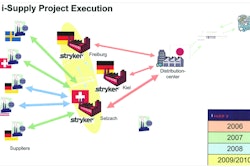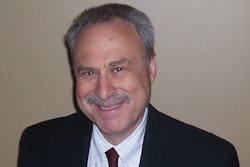MOSCOW (AP) — Riding a wave of military gains by Russia-backed rebels, President Vladimir Putin has made it exceedingly clear that he wants a peace deal for Ukraine on his terms and will not be stopped by economic costs.
The four-month conflict has now reached a breaking point, where Russia and Ukraine could either negotiate a political settlement or plunge deeper into hostilities.
Prospects for a political settlement looked dim just a few weeks ago while the Ukrainian troops were methodically tightening their noose around pro-Russia rebel strongholds in the east, but Kiev's hopes for a quick victory were short-lived. A rebel counter-offensive has quickly turned the tide against the Kiev government, inflicting huge losses and raising the threat of Ukraine losing access to the energy-rich Sea of Azov.
The West has accused Russia of sharply escalating the conflict by sending regular army units into Ukraine after months of covert assistance to the rebellion and has threatened more sanctions.
Putin's apparent response is: What you call a Russian invasion is nothing compared to what we could do and all options are on the table. The Kremlin's halfhearted denial of Putin's warning that Moscow could seize the Ukrainian capital in two weeks if it wished, which he reportedly made to European Commission chief Jose Manuel Barroso last week, only reinforced the signal that Russia will not back off.
Putin's comment last week emphasizing Russia's nuclear arsenal appeared to send the same tough message to the West: Don't mess with us.
Meanwhile, President Barack Obama will make a symbolic show of Western support for the Baltic countries by traveling to Estonia on Wednesday before heading to a NATO summit Thursday in Wales that is expected to draw out plans to boost the alliance's military commitments in Central and Eastern Europe.
With fighting raging in eastern Ukraine, representatives of Kiev, Moscow, pro-Russia separatists and the Organization for Security and Cooperation in Europe met in the Belarusian capital on Monday to begin a new round of talks on settling the crisis.
Hinting at a possible compromise, the rebels dropped their previous demand for full independence and expressed readiness to discuss keeping the eastern regions inside Ukraine in exchange for a blanket amnesty and broad autonomy.
The talks were quickly adjourned until Friday and it wasn't clear if the parties could narrow their differences.
Moscow wants Kiev to give the rebel regions sweeping powers that would let them keep close ties with Russia and allow the Kremlin to maintain leverage over Ukraine and prevent it from ever joining NATO.
Ukrainian President Petro Poroshenko has promised to delegate broad authority to the regions and guarantee citizens' the right to use the Russian language, but his plan lacked specifics and it has remained unclear whether Moscow would see it as sufficient.
Repeated attempts to negotiate a settlement have failed, prompting the West to introduce several rounds of economic sanctions that targeted officials and businessmen close to Putin and, finally, entire sectors of the Russian economy. Russia responded last month by banning most food imports from the West.
While most experts agree that the penalties will eventually inflict significant damage on the Russian economy and push it deeper into recession, they will need time to take effect. So far, the sanctions clearly have failed to serve their stated purpose of stopping Putin's hand.
The Russian leader seems ready to face much tougher punishment instead of backing off. If attempts to negotiate a peace deal fail again and more economic sanctions come, Putin's likely response would be to further raise the ante to push the West into making a deal.
Carving a land corridor along the Sea of Azov for supplying Crimea, which has faced power and water shortages since the annexation, is something Russia could threaten to do next.
Russia could have easily grabbed more land at the start of the crisis, when it annexed Crimea in March, but Putin apparently has seen it as an unnecessary burden, hoping to reach a deal with the West to protect Moscow's interests in Ukraine without an open invasion.
He has failed in his calculus as the United States and the European Union have ignored his demands and methodically raised the costs for Russia. But the West, in its turn, also has clearly underestimated Putin's stubborn resolve and his readiness to risk economic damage, falsely hoping that sanctions will force him to back off.
The apparent judgment errors by both sides now have pushed the crisis closer to a full-scale war between Russia and Ukraine.
The United States and NATO have made it clear that they won't use military force if Russia invades Ukraine. Even if Washington decides to provide Ukraine with weapons, as some U.S. politicians have urged, such a move will take time and serve little practical purpose.
It would take time to train Ukrainian soldiers, accustomed to Soviet-made weapons, how to use Western armaments. And the Ukrainian military's main problem isn't the shortage of tanks or missiles, of which it has plenty, but bad training, poor coordination and the low morale of hastily drafted conscripts.
The Russian military, in contrast, now appears more combat-ready than ever since the Soviet times. A sweeping modernization program has allowed the army to upgrade its arsenals, and a series of massive drills involving tens of thousands of troops and thousands of tanks have helped polish soldiers' skills in the past years.
Despite the latest escalation, Putin still doesn't seem to consider a full-fledged invasion as a viable option. For his purposes, tacit support of the rebellion with certain power of deniability is sufficient to keep the conflict burning to press Ukraine and the West into making a deal on his terms. A massive invasion would carry devastating costs for Russia and could quickly erode his power.
The Russian president may hope that the continuing fighting in the east, coupled with deepening economic problems will eventually soften Kiev's reluctance to compromise. Ukraine is teetering on the verge of economic collapse, avoiding bankruptcy only thanks to Western financial aid. Soaring utilities prices and likely fuel shortages in the winter will likely add to the pressure and foment discontent.
___
Isachenkov has covered Russia and other ex-Soviet nations for the AP since 1992.
 Copyright 2014 The Associated Press. All rights reserved. This material may not be published, broadcast, rewritten or redistributed.
Copyright 2014 The Associated Press. All rights reserved. This material may not be published, broadcast, rewritten or redistributed.


















